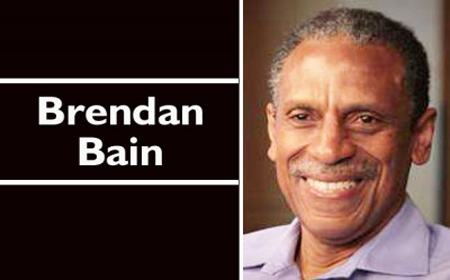BELIZE CITY, Wed. Aug. 2, 2017–Former professor at the University of the West Indies (UWI), Brendan Bain, has emerged victorious in a lawsuit against UWI.
Jamaica’s Supreme Court has ruled that his termination was in violation of his right to freedom of expression.
According to the Jamaica Gleaner, the court has ordered UWI to pay Bain 4.72 million Jamaican dollars or about US$40,000 for the unlawful termination.
At the time he was terminated, Bain had nine months remaining in his contract, and so he is also asking the court for compensation for those months during which he would have continued to collect a salary from the university.
Prior to his termination, he earned US$12,380 monthly.
Additionally, he is asking the court to award him US$37,000 because instead of giving him three months’ notice of the termination as stipulated in his contract, the university notified him of the termination just three weeks before it took effect.
In May 2014 Bain, the Director of UWI’s Caribbean HIV/AIDS Regional Training Network at the time, was terminated by UWI after testifying as an expert witness in a case to consider a legal challenge brought by the United Belize Advocacy Movement (UNIBAM) in Belize.
At the time, UNIBAM had filed a legal challenge to remove Section 53 from the law books of Belize.
That section stated, “Every person who has carnal intercourse against the order of nature with any person or animal shall be liable to imprisonment for ten years.”

Bain told the Gleaner, “I want to express great sadness that this ever happened, because that university is the place that nurtured me. I am very sad that this happened, and that we all had to go through this trial.”
Today, Amandala contacted attorney Audrey Matura, who, while she served as vice president of Oceana in Belize, faced conflicts in the terms of her employment that were similar in several ways to those experienced by Bain.
She had written an article in this newspaper about bestiality, which, she said, prompted her employers, OCEANA, to ask that she stop writing. However, she instead chose to resign from her post, so that she could be able to voice her concerns.
“Free speech is one of our most sacred rights under our constitution, and if the tables had switched and the opponents of LGBT were targeted at their jobs for speaking out, I would have defended their right to free speech,” she told Amandala this afternoon.
According to her, the promotion of the LGBT agenda in Belize and the region was done in a fashion which intimidated and sought to silence those who held opposing views.
“Bain was targeted because he provided expert evidence in the area of men having sex with men and based on his own study, so the danger with them seeking to punish him for that is twofold: They sought to have him lose his job for publishing his finding, and this was done knowing he was a witness in an ongoing case, as if to intimidate him to withdraw from giving his professional opinion,” she told Amandala.
She then commented on the university which, she said, “should have equal tolerance and greater professional respect for its scholars.”
She added, “I don’t know why they had positioned themselves as if the LGBT issue was one-sided. Those non-pro-LGBT staff and students should be worried that they do not have a right to their own position, nor to producing academic work that does not give support to the LGBT agenda… that is scary!”
She commended Bain for taking a stand saying, “he stood strong and did the right thing.”
She ended, “It is refreshing to know that the court was not timid about making that ruling.”
